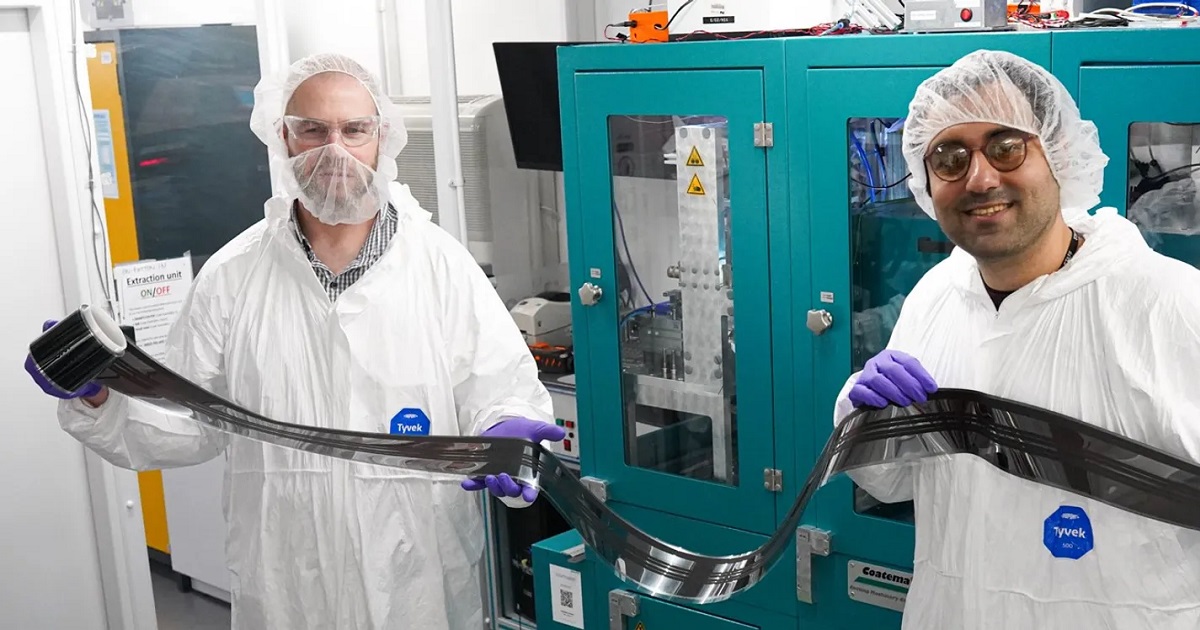Swansea University scientists make major solar cell breakthrough

Scientists at Swansea University have developed the world’s first completely roll-to-roll (R2R) printable perovskite solar cell.
This major breakthrough could lead to the mass production of these highly efficient solar cells, which could help to reduce reliance on fossil fuels.
Perovskite solar cells are made from a relatively new material called perovskite, which has the potential to be more efficient than traditional silicon solar cells.
However, one of the challenges in commercialising perovskite solar cells has been the difficulty of manufacturing them at scale.
The team at Swansea University has overcome this challenge by developing a new method for printing the cells using a roll-to-roll process, similar to the way that newspaper is printed.
This process allows the solar cells to be manufactured quickly and cheaply, which could make them more affordable for consumers.
The new cell is made using a low-cost and scalable carbon ink formulation, which could make it possible to manufacture them at scale.
Perovskite materials are relatively new to the solar cell industry, but they have quickly become one of the most promising types of solar cells due to their high efficiency and low cost.
Manufactured
The cells are typically manufactured using a process called vacuum deposition, which is slow and expensive.
The new process uses slot die coating, a high-speed, continuous manufacturing process that is used to produce a variety of products, including plastic films and food packaging.
Using the slot die coating process enables the manufacture of large-area solar cells. The new printable cell developed at Swansea is the first to use this process.
The university’s Photovoltaic Research Lead, Professor Trystan Watson, said: “Perovskite solar cells show great promise in the drive towards cleaner, greener energy. The ability to produce a fully working device entirely in-line makes high-volume manufacturing easier and more economical and is a big step towards their commercialisation.
“It unlocks the idea of manufacturing process where a solar ink is added one end and a solar cell emerges from the other.”
Support our Nation today
For the price of a cup of coffee a month you can help us create an independent, not-for-profit, national news service for the people of Wales, by the people of Wales.







That’s brilliant! Da iawn!